Fresno Veterinary Specialty & Emergency Center
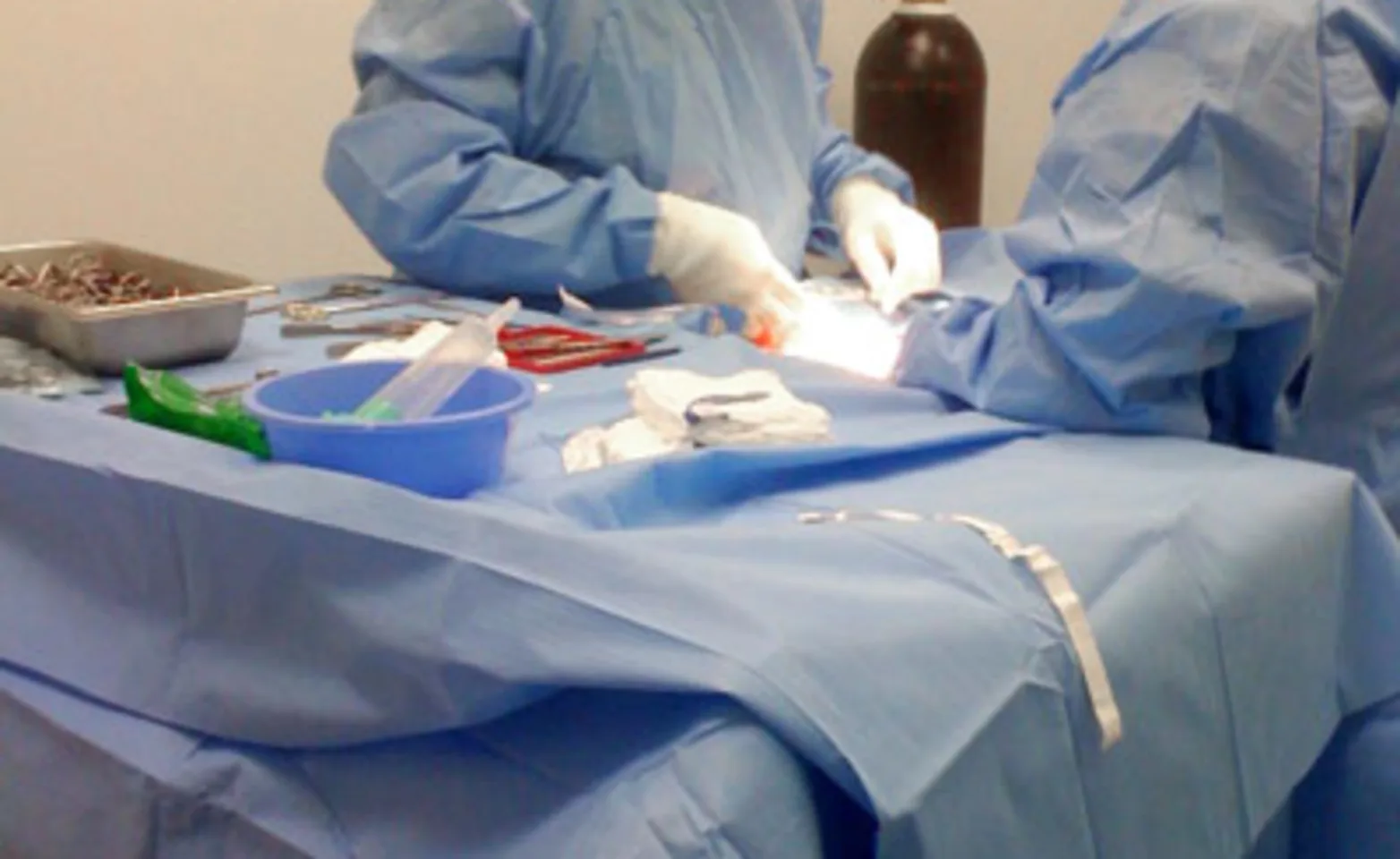
Fresno Veterinary Specialty and Emergency Center offers surgical services by our board-certified surgeons. Surgical patients are referred to our team by the referring veterinarian or our emergency services.
If your pet is referred to our surgical services, your pet’s medical record, laboratory work, radiographs, and previous history will be beneficial to our surgical staff when consulting with you. Please have your referring veterinarian prepare the needed materials before your appointment.
For the safety of all hospital patients, all dogs and cats must be leashed, crated or carried at all times. Retractable leashes must be locked at all times.
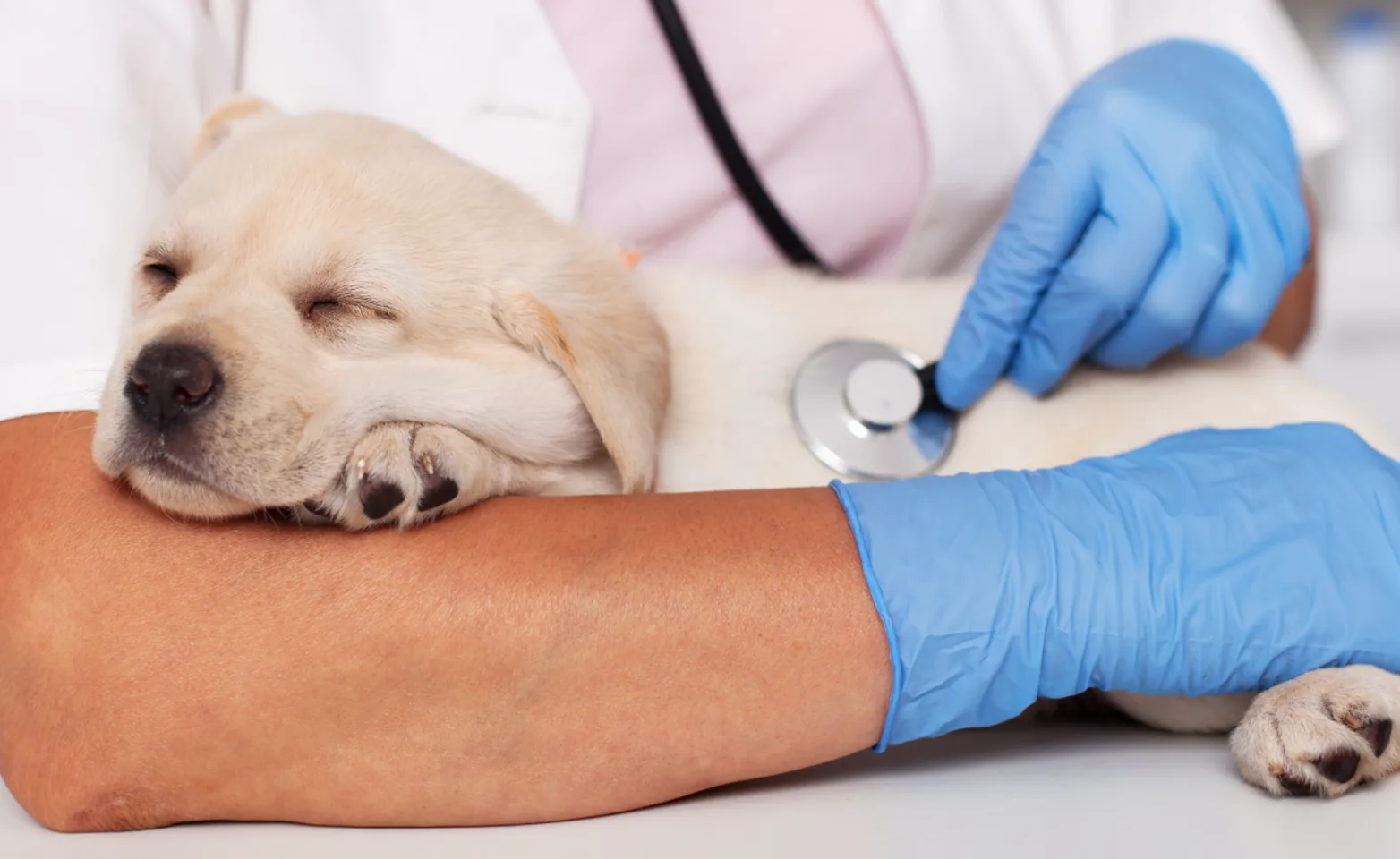
Reasons for Veterinary Surgery
While not all health problems that your pet may have will require surgery, it is sometimes the best course of action. The reasons why your pet needs surgery can vary greatly, but a few of the most common problems with surgical solutions are:
Blockages: If your pet swallows something that they shouldn't, they may develop a blockage that requires surgery to remove.
Cancer: Surgery isn't always necessary to treat cancer, but it may be beneficial to remove some or all of your pet's tumors this way.
Injuries: Some broken bones and other serious wounds may require surgery for reconstruction or repair.
Tooth decay: Gum disease or severe tooth decay may require dental surgery to remove infected teeth.
Whatever your pet's surgical needs are, our hospital is fully equipped with state-of-the-art surgical suites and two skilled surgeons on staff to assist you. Learn more about the best surgical team in Fresno, CA below.
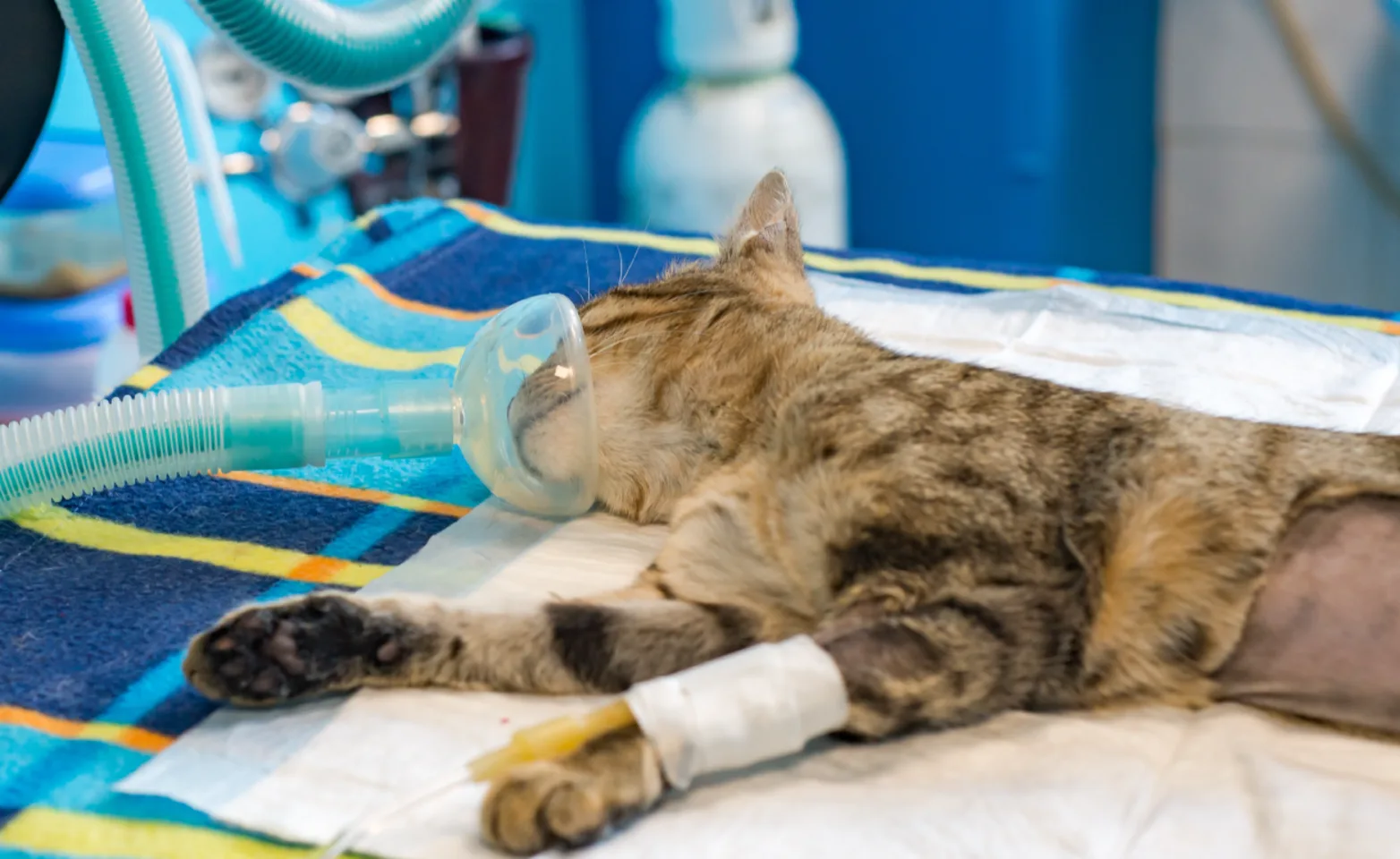
Surgical Procedures We Offer
At Fresno Veterinary Specialty & Emergency Center, we are prepared to handle any surgery your dogs, cats, exotic pets, and reptiles may need. Some of the most common procedures that we offer include:
Dental surgery: Your pet may need dental surgery to remove diseased teeth, oral growth, or to resolve other conditions.
Injury repair surgery: Some serious injuries may require surgery.
Orthopedic surgery: Broken bones or severe arthritis may be helped with orthopedic surgery.
Removal of foreign bodies: Foreign bodies lodged in your pet's digestive tract may require surgical removal.
Sterilizations: Spay and neuter services are performed surgically.
Tumor removal surgery: Cancerous or painful tumors may be removed via surgery.
All clients are presented with proposed treatment plans for medical care for their pet. After examination by our doctor, a treatment plan will be generated based on the medical needs of the pet. A pre-payment of the high end of the treatment plan is required for treatment.
Learn more about the laparoscopic surgery we offer below.
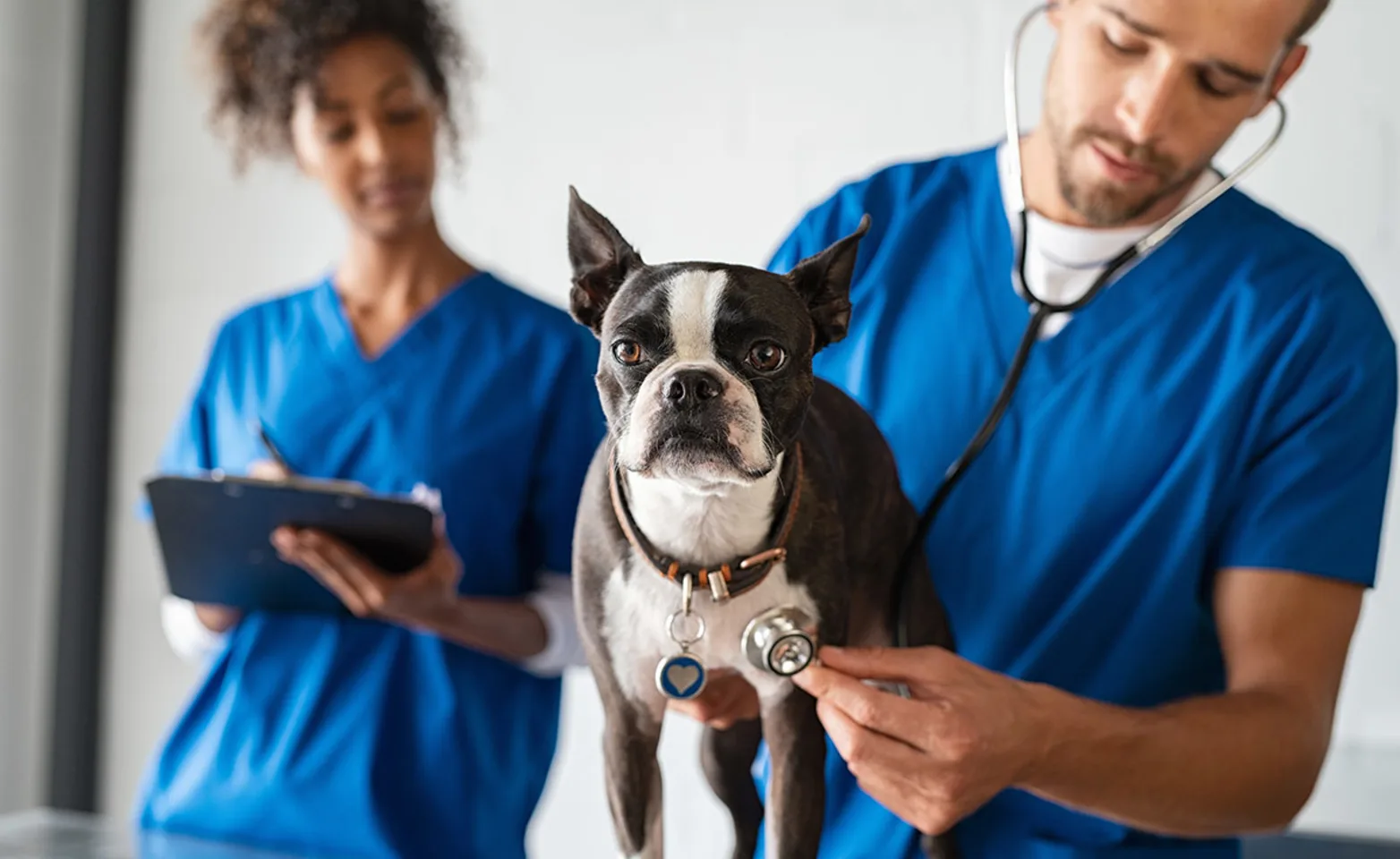
Appointments
Once you have consulted with your primary care veterinarian and they have referred your pet to our specialist, you will need to book an appointment through our homepage by selecting "Book Appointment." This is found in the upper right-hand corner of the homepage.
For the safety of all hospital patients, all dogs and cats must be leashed, crated, or carried at all times. Retractable leashes must be locked at all times. Appointments/consultations are approximately 30-60 minutes, depending on the severity of the case.
Is the anesthetic safe?
Today’s modern anesthetic monitors have made surgery much safer than in the past. At Fresno Veterinary Specialty and Emergency Center, we do a thorough physical exam on your pet before administering anesthetics. We also adjust the amount and type of anesthetic used depending on your pet's unique situation. Every pet needs blood testing before surgery to ensure that the liver and kidneys can handle the anesthetic. Pre-anesthetic blood testing is important in reducing the risk of anesthesia. Even apparently healthy animals can have serious organ system problems that cannot be detected without blood testing. If there is a problem, it is much better to find it before it causes anesthetic or surgical complications. If serious problems are detected, surgery can be postponed until the problem is corrected.
We often recommend sending blood and urine to a commercial laboratory and scheduling your pet’s surgery after the results are known. If delaying the surgery is not advisable, we will recommend in-house blood and urine testing before surgery. Regardless of which laboratory we use, we will go over the results with you before we continue to surgery. Our doctors order a comprehensive screen because it gives them the most information to ensure the safety of your pet. For geriatric or ill pets, additional blood tests, electrocardiograms, or X-rays may be required before surgery as well.
It is important that surgery is performed while the patient has an empty stomach to reduce the risk of vomiting during and after anesthesia. You will need to withhold food for at least eight to ten hours before surgery. Water can be left for the pet until the morning of surgery.
Will my pet have stitches?
For many surgeries, we use absorbable sutures underneath the skin. These will dissolve on their own, and do not need to be removed later. Some surgeries, especially tumor removals, do require skin stitches or stainless steel surgical staples. You will need to keep an eye on the incision for swelling or discharge. Most dogs and cats do not lick excessively or chew at the incision, but this is an occasional problem for which you will need to watch. If there are skin sutures or staples, these will usually be removed ten to fourteen days after surgery. You will also need to limit your pet’s activity level for a time, and no baths are allowed for the first ten days after surgery.
Will my pet be in pain?
Anything that causes pain in people can be expected to cause pain in animals. Pets may not show the same symptoms of pain as people do; they usually don’t whine or cry, but you can be sure they feel it. Pain medications needed will depend on the surgery performed. Major procedures require more pain relief than minor lacerations, for example.
For dogs, we may recommend an oral anti-inflammatory the day after surgery and several days after to lessen the risk of discomfort and swelling. We use newer medications, which are less likely to cause stomach upset and can be given even the morning of surgery. The cost of the medication depends on the size of your pet. Usually, larger pets require more expensive prescriptions.
Because cats do not tolerate standard pain medications such as aspirin, ibuprofen, or Tylenol, we are limited in what we can give them. Recent advances in pain medications in cats have allowed for better pain control than ever before. We administer a pain injection ten minutes prior to surgery. After surgery, pain medication is given on a case-by-case basis. Any animal that appears to be in pain will receive additional pain medication.
We often use narcotic patches for our patients. The cost depends on the size of the patch applied to the pet and this is related to the pet’s body size. Injectable pain medications are nearly always used before and after surgery on both dogs and cats. Providing whatever pain relief is appropriate is a humane and caring thing to do for your pet.
What other decisions do I need to make?
When you bring your pet in for surgery, we will need to five to ten minutes to fill out paperwork. When you pick up your pet after surgery, please plan to spend about ten minutes to go over your pet’s home care needs.
We will call you the night before your scheduled surgery appointment to confirm the time you will be dropping off your pet and to answer any questions you might have. In the meantime, please call us with any questions about your pet’s health or surgery.
